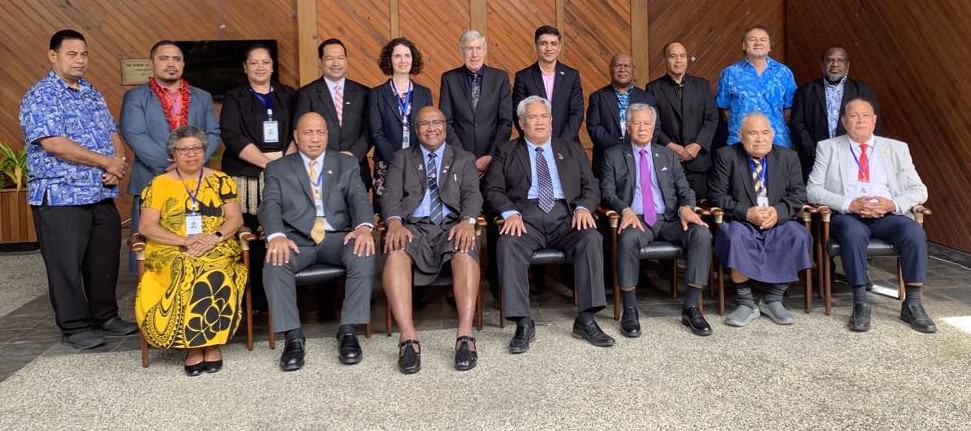The annual meeting of Trade Ministers from the Pacific Islands Forum in Fiji has agreed on the need to develop a regional strategy on labour mobility in the Pacific, citing the welfare of workers from Pacific Island countries as a key area of focus.
Addressing journalists at the end of the two-day meeting at the Forum Secretariat in Suva, Forum Deputy Secretary-General Esala Nayasi said the issue is an important one where “there’s a lot that members have to discuss”.
Fiji’s Minister for Trade and Deputy Prime Minister, Manoa Kamikamica, said the issue was not discussed in detail during the meeting but there is an understanding that comprehensive assessments need to be carried out at the country level by Forum members.
“And this will inform the proposal to have a regional strategy on labour mobility,” he said.
“There were some very broad discussions around for example, when workers head off to offshore, generally, sometimes when the [wage] deductions are done, they virtually have nothing in terms of disposable income. So, I think we can certainly say that the labour mobility strategy will include a lot of very focused discussions around the welfare of our workers. But certainly today, it was all about just focusing on trying to move forward with the regional strategy on labour mobility,” Kamikamica said.
Nayasi said the issue will be advanced in the coming months through comprehensive assessments the PIF Secretariat will take up with various stakeholders, including the PACER PLUS implementation unit based in Apia.
A key item on the Trade Ministers’ agenda was the 13th World Trade Organization Ministerial Conference (MC 13), to be held in Abu Dhabi in February 2024.
Kamikamica said the ministers agreed that strong leadership will be taken by the Forum WTO members to conclude the fisheries subsidy agreement on over capacity and overfishing at MC 13.
“We consider the conclusion of this agreement as something that will ensure that our stocks are protected and that fisheries remain sustainable for many years to come,” he said.
“We know that Samoa will be chairing or leading the discussions in the ACP (the African, Caribbean and Pacific Group) and Fiji has on record declared its full support to Samoa. And we will ensure that when we begin the discussions in Abu Dhabi, that the position of the Pacific is very clear in that forum.”
The WTO Agreement on Fisheries Subsidies, adopted at the 12th Ministerial Conference in June 2022, marks a major step forward for ocean sustainability by prohibiting harmful fisheries subsidies, which are a key factor in the widespread depletion of the world’s fish stocks.
For the Agreement to become operational, two-thirds of members must deposit their “instruments of acceptance” with the WTO.
Kamikamica said that following the first wave of discussions last year which agreed to some levels of protection on over capacity and overfishing, MC 13 will focus mainly on subsidies.
“It is a concern from the Pacific perspective because subsidies allow international, particularly larger countries to have subsidised operations in our waters. And that is primarily why we no longer have any local fleets in our waters. So, from an economic security perspective, it is quite important that the Pacific make their voices heard in accordance with the need to ensure that subsidies are brought under control.”
On a separate note, he said Fiji tabled a paper on developing an enhanced connectivity strategy for the Pacific.
“What it endeavours us to do is continue to work on connecting our region, both in terms of aviation and marine transport, as Fiji believes that a well-connected region plays well into the 2050 Blue Pacific Strategy. And Fiji will certainly next year, be looking forward to continuing to work with our member states to allow the benefits of what come from a well-connected region to flow to the island states.”
